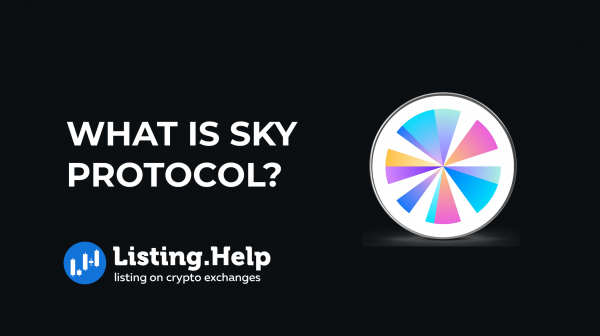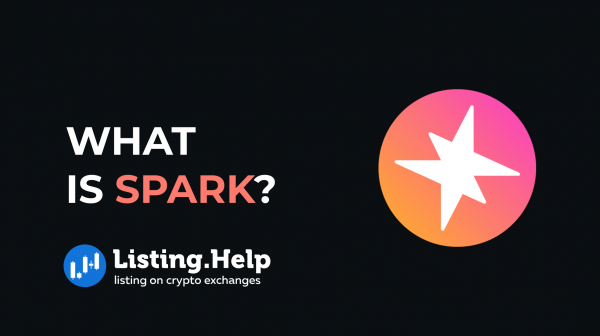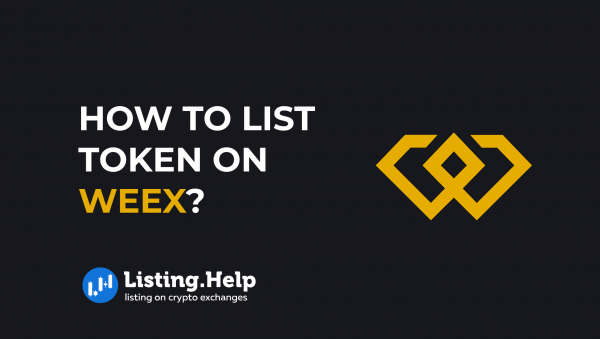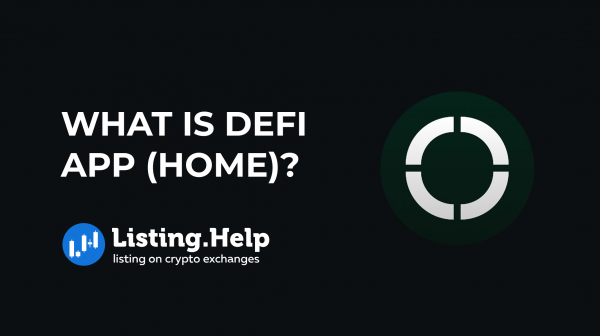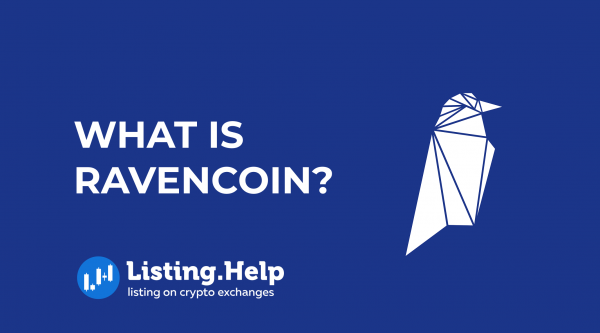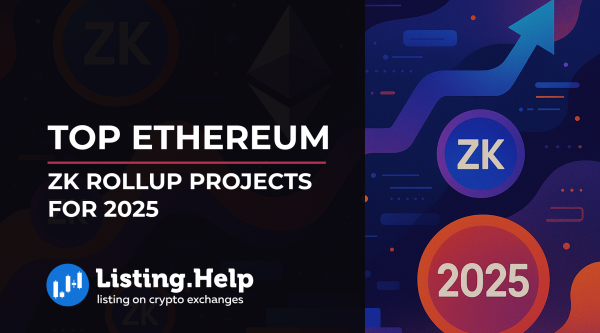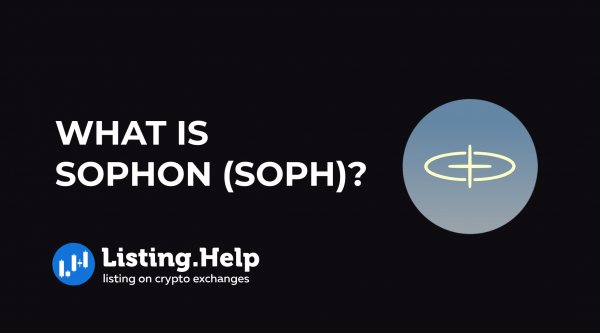What Is a Decentralized Exchange (DEX)?
 December 26, 2023
December 26, 2023 Updated: January 27 2025, 07:23
Updated: January 27 2025, 07:23
LEAVE A REQUEST
Launching your own token project? Our experts are ready to help with listing on exchanges, market making, marketing and other solutions
SUBMIT APPLICATIONSince the inception of Bitcoin, exchanges have been instrumental in connecting buyers and sellers of cryptocurrencies. These platforms have been crucial in fostering global participation, ensuring liquidity, and establishing a consensus on asset pricing.
Historically, this space has been ruled by centralized entities. Yet, the landscape is changing rapidly with advancements in technology, paving the way for decentralized trading options.
In this discussion, we’ll focus on decentralized exchanges (DEXs), which are trading platforms operating without the need for intermediaries. These DEXs represent a significant shift in how cryptocurrency transactions are facilitated, offering an alternative to traditional centralized models.
Theoretically, any peer-to-peer exchange can be considered as such, with atomic swaps being a prime example. However, our focus here is on platforms that mirror the functionalities of traditional centralized exchanges, with a significant twist: their backend operations are based on blockchain technology.
The defining feature of these platforms is that they operate without taking custody of user funds. It means that users aren’t required to place the same level of trust in these decentralized exchanges as they would in their centralized counterparts. The reliance on blockchain not only enhances security but also ensures transparency and autonomy in trading activities.
How Does a Centralized Exchange Work?
In a typical centralized exchange, users deposit funds, which can be in the form of fiat money (through bank transfers or credit/debit cards) or cryptocurrency. Here’s a breakdown of how things work:
– Deposit and Control: Upon depositing cryptocurrency, users technically relinquish control over it. Although they can trade or withdraw it, they can’t directly use it on the blockchain.
– Private Keys and Withdrawals: Users don’t possess the private keys to their funds. To withdraw, they rely on the exchange to authorize transactions on their behalf.
– Transactions: Trading doesn’t happen on the blockchain. Instead, the exchange adjusts balances within its internal database.
Centralized exchanges offer a streamlined experience, unhampered by the often slower speeds of blockchain transactions. Everything operates within a single system, simplifying the buying and selling of cryptocurrencies and providing users with more trading tools.
However, this efficiency comes with a trade-off – independence and trust:
– Trust in the Exchange: Users must trust the exchange with their funds, exposing them to counterparty risks like potential internal fraud or hacking incidents.
– Risk Management: To mitigate these risks, many users opt for exchanges with strong reputations and robust security measures against data breaches.
For a significant number of users, the convenience and tools offered by centralized exchanges justify this level of risk, as long as they select platforms known for their reliability and security protocols.
How Does a Decentralized Exchange Work?
Decentralized exchanges (DEXs) share similarities with centralized exchanges but differ in key aspects. The defining characteristic of DEXs is that all transactions are executed on-chain using smart contracts, and users retain custody of their funds throughout the process. While there are various types of DEXs, the most common ones focus on assets within a single blockchain, like Ethereum or Binance Chain.
On-chain Order Books:
In some DEXs, every aspect of the transaction, including orders, modifications, and cancellations, is recorded on the blockchain. This method offers high transparency, as there’s no intermediary to manage or potentially alter the orders. However, this approach has its drawbacks, like transaction fees and longer wait times for order processing since every action requires network validation. Another concern is the potential for a different form of front-running, where a miner might see and prioritize their own transactions over others. Stellar and Bitshares are examples of DEXs using on-chain order books.
Off-chain Order Books:
Alternatively, an off-chain order book DEXs centralize the order management aspect while still offering non-custodial storage of funds. These platforms might have a centralized entity controlling the order book, posing risks like potential market manipulation. A well-known implementation of this model is the 0x protocol on Ethereum, which allows “relayers” to manage off-chain order books. These systems provide a smoother user experience compared to on-chain models but still require final trade settlement on the blockchain. Binance DEX, IDEX, and EtherDelta are examples of DEXs utilizing off-chain order books.
Automated Market Makers (AMM):
Moving away from traditional order book models, AMMs eliminate the need for makers or takers and rely on algorithms and incentives for trade facilitation. Each AMM has its own unique set of rules and incentives, often involving a network of smart contracts. AMMs are generally more user-friendly and integrate easily with wallets like MetaMask or Trust Wallet. However, they still necessitate on-chain transactions for finalizing trades. Prominent projects in this area include Uniswap and Kyber Network, both of which focus on trading ERC-20 tokens.
Benefits of Using Decentralized Exchanges (DEXs)
Guaranteed Order Execution:
DEXs operate on deterministic smart contracts, ensuring that trades are executed exactly as the user intends. This precision eliminates the possibility of interference by any centralized authority, offering a level of reliability that’s hard to match in traditional exchanges.
Increased Transparency:
One of the standout advantages of DEXs is their transparency. Conventional financial markets can sometimes be opaque and subject to censorship, but DEXs offer clear insights into their trading processes. This transparency provides traders with a better understanding and more trust in the trading mechanism.
Reduced Counterparty Risk:
By removing the need for intermediaries and allowing direct transactions from personal wallets, DEXs significantly lower counterparty risk. This aspect is particularly important in the blockchain industry, where the concentration of capital on a few centralized exchanges can pose systemic risks. A notable example of such risk was the collapse of Mt. Gox in 2014, a centralized exchange that handled a large volume of Bitcoin transactions before its sudden shutdown led to substantial Bitcoin losses.
Promoting Financial Inclusion:
DEXs also play a crucial role in fostering financial inclusivity. Unlike some centralized exchanges (CEXs) that may restrict access based on location, DEXs are accessible to anyone with an internet connection and a suitable crypto wallet. Moreover, the process of joining a DEX is generally more straightforward and faster than the often rigorous onboarding procedures of centralized exchanges. This ease of access makes DEXs an attractive option for a wider range of users, contributing to a more inclusive financial ecosystem.
Risks and factors to consider in DEXs
Smart Contract Vulnerabilities:
Despite the inherent security of blockchains, the reliability of a DEX’s smart contract is contingent on the development team’s skills. Vulnerabilities in smart contracts can expose users to financial risks. To minimize these risks, developers often undertake thorough security audits, peer code reviews, and comprehensive testing procedures.
Liquidity Issues:
Many DEXs struggle with liquidity in certain markets, leading to notable price slippage and a less satisfactory trading experience. This issue often results in lower liquidity in trading pairs on DEXs compared to their centralized counterparts.
Frontrunning Concerns:
The transparency of blockchain transactions makes DEX trades vulnerable to frontrunning. Arbitrageurs or MEV bots can exploit this transparency by using higher transaction fees and optimized network strategies to take advantage of market inefficiencies, similar to high-frequency trading tactics in traditional markets.
Centralization Risks:
While DEXs strive for complete decentralization, some aspects may remain centralized. For instance, a DEX’s matching engine could be hosted on centralized servers, or the development team might have administrative access to the DEX’s smart contracts, leading to potential centralization concerns.
Network Dependencies:
The functionality of a DEX is heavily dependent on the underlying blockchain network. Network congestion or downtime can make trading on DEXs costly or even impractical, leaving users vulnerable to market volatility.
Scam Token Risks:
The permissionless nature of many DEXs means that anyone can create a market for any token, increasing the likelihood of encountering low-quality or malicious tokens. Users need to be cautious and informed, particularly when dealing with early-stage projects.
User Responsibility:
Full control over private keys, while empowering, can be daunting for some users. While this level of control aligns with the ethos of Web3, certain users may prefer to entrust asset custody to a third party. Adopting sound security and key management practices is crucial for users who choose to retain control over their assets in the diverse ecosystem of open-source financial services provided by DEXs.
Conclusion
Decentralized exchanges (DEXs) have become an integral part of the cryptocurrency ecosystem, providing a platform for users to trade digital assets directly without intermediaries. Their rise in popularity over the past few years can be credited to several factors. DEXs enable immediate liquidity for new tokens, offer an easy onboarding process, and provide broad access to trading and liquidity options. This user-centric approach, combined with the enhanced security and transparency inherent in DEXs, underscores their growing significance in the digital asset landscape.

For a deeper understanding of decentralized exchanges and their impact on the cryptocurrency world, we invite you to visit our blog at https://listing.help/blog/. Whether you’re new to cryptocurrencies or a seasoned trader, our blog provides valuable insights to enhance your knowledge and trading strategies.






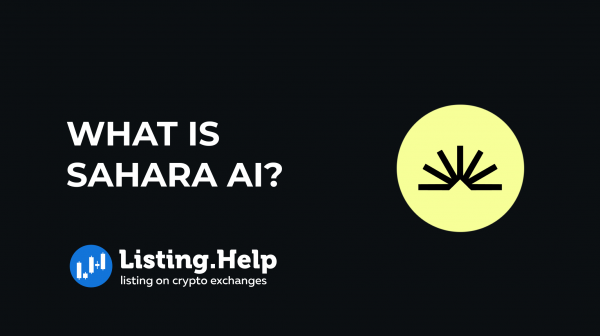
 July 2, 2025
July 2, 2025 